HSAs
Health Savings Accounts
Take control of your medical expenses with a no-fee, tax-exempt Family First Health Savings Account (HSA). Designed for those with High Deductible Health Plans (HDHPs), HSAs let you save for future medical needs and cover current expenses that are not covered by insurance, while enjoying tax-deductible contributions, tax-free earnings, and tax-free withdrawals for qualified expenses.
Secure Online Portal
Family First has partnered with Superior IRA & HSA to develop a secure online portal for you to manage your HSA yourself, no matter where you are!
The first time you use this portal, you’ll go through an identity verification process and will be required to create a new password. When verifying your identity, be sure to use the email address you currently have on file with Family First.
HSA Checking
Deposit the funds into an HSA Checking account for immediate and secure fund access! Use your HSA Checking to pay for qualified health expenses, then easily track your spending online with our free online and mobile banking services.
Take advantage of:
- No maintenance fees
- No minimum balances
- Free Tap-to-Pay HSA Debit Card
- Total control of your HSA funds
Ways to Save
Members can take advantage of additional risk-free investment options, including:
- HSA Savings
- HSA Certificates of Deposit
- HSA MoneyBuilder accounts
With Family First, your health savings funds are not subject to maintenance fees and are insured up to $250,000 by the NCUA.
Health Savings FAQ
Any adult can contribute to an HSA if they:
- Have coverage under an HSA qualified high deductible plan (HDHP)
- Have no other first-dollar medical coverage (like specific injury or accident insurance. Disability, dental, vision, and long term care insurance are permitted)
- Are not enrolled in Medicare
- Cannot be claimed as a dependent on someone else’s tax return
Contributions to your HSA can be made by you, your employer, or both. However, the total contributions made to your HSA are limited annually. If you make contributions, you can deduct them (even if you do not itemize deductions) when completing your federal income tax return.
Account contributions must stop once you are enrolled in Medicare, but you can keep the funds in your account and continue to use to to pay for medical expenses tax-free.
You can make contributions to your HSA each year that you are eligible.
2025 Contribution Limits:
- Up to $4,300* (Self-only coverage)
- Up to $8,550* (Family coverage)
Individuals age 55 and older can also contribute up to an additional $1,000 in “catch-up contributions.”
For annual HDHP Deductibles, and Out-of-Pocket Maximums, visit the IRS website at https://www.irs.gov/
*Amounts are adjusted annually for inflation.
Account contributions must stop once you are enrolled in Medicare or you no longer have a High Deductible Health Plan. However, you can keep the funds in your account and continue to use them to pay for medical expenses tax-free.
With an HSA there is no such thing as “use it or lose it.” Keep your HSA, even when you:
- Change jobs or become unemployed
- Change your medical coverage
- Move to another state
- Change your marital status
Generally, High Deductible Plans (HDHPs)are health insurance plans that don’t cover first-dollar medical expenses.
2025 Annual Minimum Deductibles:
- $1,650* (Self-only coverage)
- $3,300* (Family coverage)
In addition, annual out-of-pocket expenses under the plan (including deductibles, co-pays, and co-insurance) are capped at a specified dollar amount.
2025 Annual Out-Of-Pocket Max:
- $8,300* (Self-only coverage)
- $16,600* (Family coverage)
In general, the deductible applies to all medical expenses (including prescriptions) covered by the plan. Plans can also pay for Preventive Care** services on a first-dollar basis (with or without a co-pay).
*Amounts are adjusted annually for inflation.
**Preventative care can include routine pre-natal and well-child care, child and adult immunizations, annual physicals, mammograms, pap smears, etc.
You can use the funds in your account to pay for qualified medical expenses, including expenses that your insurance may not cover, or save the money in your account for future needs. Qualified expenses include most medical care services, dental and vision care. Click here for qualified health expenses.
You can also use your HSA to pay for medical expenses for your spouse, or your dependent children, even if they are not covered by your HDHP.
There are several tax advantages that come with having an HSA:
- Deductions on contributions
- Tax-free earnings through investments
- Tax-free withdrawals for qualified medical expenses
Any HSA funds used for purposes other than qualified medical expenses are taxable as income and subject to an additional 20% tax penalty, unless you have turned 65, enrolled in Medicare, and/or become disabled.
Ineligible Expenses Include:
- Medical expenses not qualified under federal tax law (e.g. cosmetic surgery)
- Other types of health insurance unless specifically described above
- Medicare supplement insurance premiums
- Non-medical or health-related expenses
HSAs cannot be used to pay for medical insurance premiums, except under specific circumstances:
- Any health plan coverage while receiving federal or state unemployment benefits
- COBRA continuation coverage
- Qualified long-term care insurance
- Medicare premiums and out-of-pocket expenses, including deductibles, co-pays, and coinsurance for:
- Hospital & Inpatient Services
- Physician & Outpatient Services
- Medicare HMO & PPO plans
- Prescription drugs
For annual HDHP Deductibles, and Out-of-Pocket Maximums, visit the IRS website at https://www.irs.gov/





